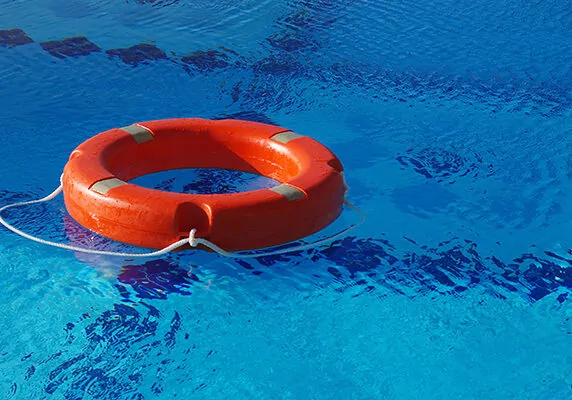California features some of the most thrilling spots to go jet skiing in the country. If you have experienced the adrenaline-rush of zooming across the Castaic Lake in the Sierra Pelona Mountains or hitting the paradise-like Newport Beach on a rented jet ski, you’re sure to come back for more.
That exhilarating wind-in-your-hair feel on a sunny day is part of the reason why 5 million Americans go jet skiing every year. But while jet skiing ranks as one of the most popular recreational activities, it is also one of the most accident-prone. This fact is good to keep in mind as you embark on another summer on the water.
- What can you do to protect yourself?
- What happens if you, despite taking precautions, are injured in a jet ski accident?
Jet ski accidents — what the statistics say
First, let’s look at the jet ski accident statistics to get a sense of the risk involved. The latest numbers from the U.S. Coast Guard did, unfortunately, break a downward trend in recreational boating accidents. In 2020, fatalities increased by 25% year over year, reaching 767 nationwide, while the number of people injured — those needing more than first aid — rose by 24%, from 2,559 to 3,191.
Jet skis make up a fifth of recreational boating accidents
Based on the Coast Guard statistics, jet skis are, in fact, more dangerous than boats or any other vessel. Although jet skis account for only 12% of registered recreational vessels, jet ski accidents make up 20% of all recreational boating accidents.
And, just to be clear, although the term “jet ski,” has become synonymous with any personal watercraft (PWC), “Jet Ski” is actually a registered trademark of Kawasaki. So, any statistics on “jet skiing accidents” also include the Sea-Doo (a PWC produced by Bombardier), the WaveRunner (produced by Yamaha), and any other PWC brands.
Racing to add more horsepower
Part of the jet ski attraction — speed — is also what presents the greatest risk. Back in the late 1980s, PWC manufacturers raced to add as much horsepower as possible to the machines. Then, in 1999, the Coast Guard took control of the increasingly dangerous situation and imposed a speed limit of 65 mph on newly manufactured watercraft.
Although manufacturers are now required to install units to artificially cap top speeds, some users take matters into their own hands to push well beyond the legal limits. A modified WaveRunner holds the top speed record at 127 mph. Add alcohol to the mix — the leading contributing factor in boating accidents — and a collision or mishap at even low speeds can have serious consequences.
What the law says
In California, any jet ski driver, must aside from adhering to the speed limit also:
- Be 16 years of age or older and in possession of a California Boater Card to legally operate a vessel powered by a motor of 15 HP or more. This includes PWCs, which produce an average of 100 to 150 HP. There’s one exception: Children from age 12 may operate such a vessel if they are supervised by a person at least 18 years of age with a California Boater Card.
- Wear a life jacket.
- Use a lanyard cutoff switch that turns off the jet ski if its operator falls out of the boat.
- Refrain from riding at night and performing stunts, like jumping over another vessel’s wake.
- Keep his or her blood alcohol limit below 0.08%. A person convicted of Boating Under the Influence (BUI) may receive a fine of up to $1,000 and six months in jail. The best choice is to consume no alcohol while operating a vessel.
What can you do to reduce the risk or impact of a jet ski accident?
Consider insurance: Just like you insure your vehicle, jet ski insurance, which tends to fall under the title of personal watercraft insurance, can help you avoid the hefty price tag that comes with accidents and other unexpected events. A good policy includes basic liability insurance that protects you against accidental physical damage and bodily injury. Talk to a reputable insurance agent about coverage.
Wear a life jacket: A serviceable, properly sized, and correctly fastened life jacket can save your life, and the statistics prove it. While drowning is by far the most common cause of death as a result of a boating accident — 75% of all victims drowned — as many as 86% of them did not wear a life jacket.
Other key pieces of advice from the Coast Guard include:
- Take a boating safety course
- Attach the engine safety switch
- Get a free vessel safety check
- Boat sober
Injured in a jet ski accident? Determining who’s responsible comes next.
Even when you take every precaution and follow every rule, others may not. If you have been injured in an accident involving a personal watercraft, it may be the result of the reckless or negligent actions of another individual or third party.
Determining who may be at fault depends on a range of variables:
Did the accident involve a rented jet ski?
Companies that rent boats and jet skis for recreational purposes are subject to strict laws. They are obligated to ensure reasonable safety is maintained throughout the rental period, whether it’s supplying appropriately sized life vests, conducting mechanical vessel checks, or providing proper safety instructions to renters. If it can be shown that they did not fulfill their duties, they may be held liable for damages.
Did you sign a liability release waiver?
A liability release waiver protects the business from being sued for if you, the renter, get hurt — but you have not, in fact, signed away all your rights to hold the responsible party accountable. The waiver typically does not apply to all types of accidents and there are exceptions that may apply. Discuss your specific situation with a reputable personal injury lawyer.
If the owner or manufacturer is to blame for the damage or injury, you can still bring a claim against them. In other words, if a defect or negligent maintenance caused the injury, you have reason to sue.
Was the accident the result of the jet ski malfunctioning?
If so, the manufacturer may be at fault and product liability can come into play.
Where did the accident take place?
Did the accident happen on the ocean? Or did it occur on a lake or river? From the perspective of the law, there’s a distinction and it may determine how the accident will be assessed. In California, there are Maritime laws that may apply (and most often they do).
Do you need help understanding your rights and pursuing legal action after a jet ski accident?
The lawyers at Penney & Associates help people receive the compensation they deserve. Our lawyers have decades of experience and have successfully taken on cases just like yours. Get in touch today to schedule a free consultation.



